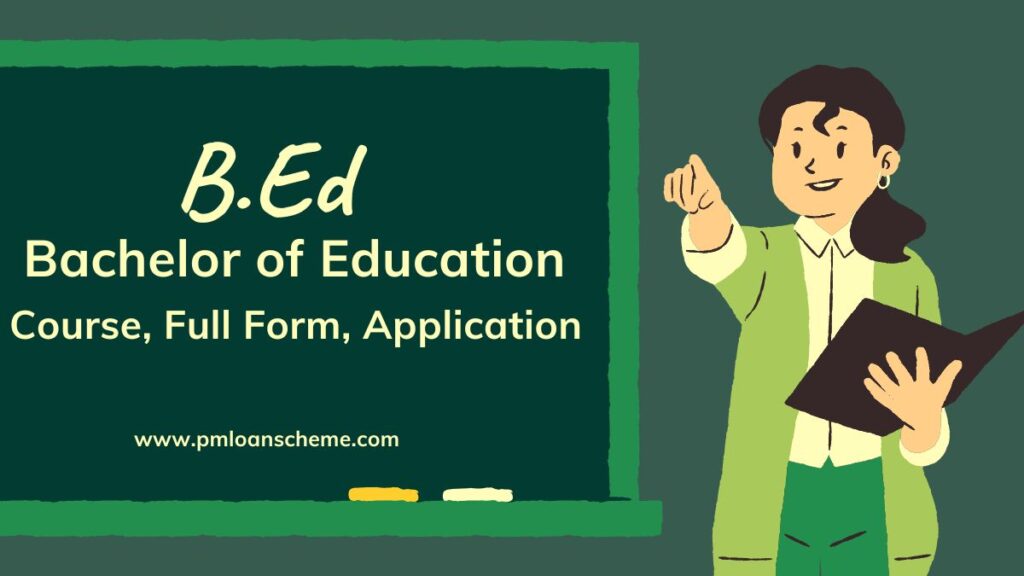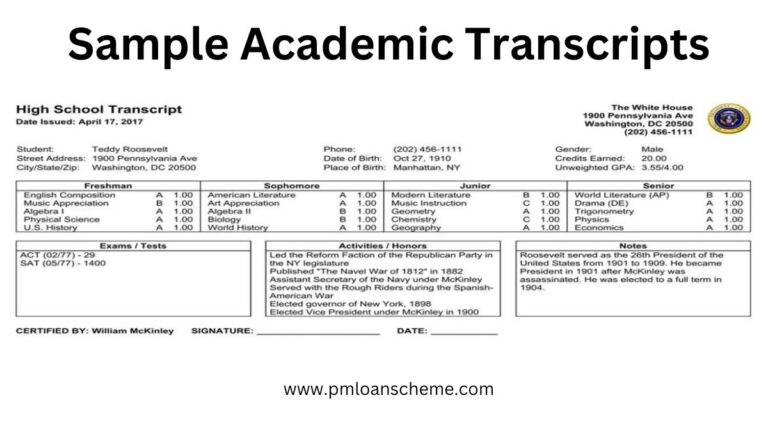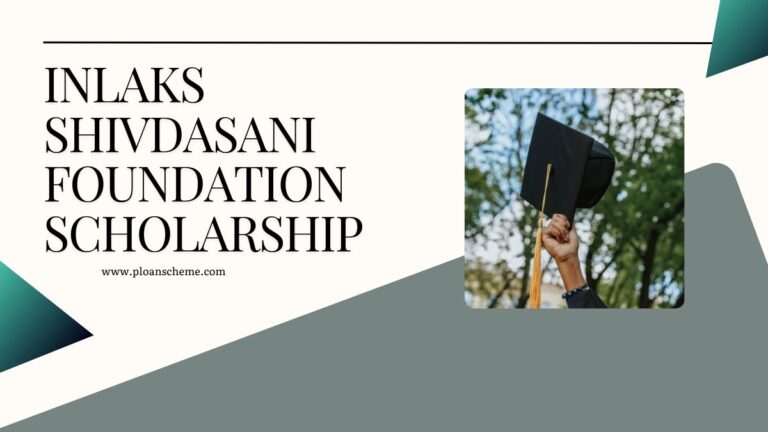The Bachelor of Education (B.Ed) is a professional undergraduate course designed to prepare aspiring teachers to work in schools and educational institutions. It is often pursued by those who wish to enter the field of teaching or educational administration.
A B.Ed degree is essential for those who want to teach at the primary, secondary, or senior secondary levels in India and many other countries. This guide covers the essentials about B.Ed, including the course structure, top colleges, eligibility, entrance exams, career options, and potential salary prospects.
B.Ed Full Form
The full form of B.Ed is Bachelor of Education. This two-year professional degree program is structured to prepare individuals with the knowledge and skills essential for a teaching career. Completing a B.Ed is a necessary qualification for anyone aspiring to teach at the middle school (grades VI-VIII), secondary (grades IX-X), or senior secondary (grades XI-XII) levels.

What is B ed?
The B.Ed course is often regarded as the first step in formal teacher education, with a focus on preparing educators specifically for secondary and senior secondary roles. The curriculum covers a range of teaching-related subjects, such as child development, teaching methodologies, and communication skills.
The course is regulated and accredited by the National Council of Teacher Education (NCTE) to ensure quality and consistency across institutions.
B ed Overview
| Aspect | Details |
|---|---|
| Full Form | Bachelor of Education (B.Ed) |
| Eligibility Requirements | Full-time: Graduation with at least 50% marks from a recognized university. Distance Learning: Graduation and 2 years of teaching experience. |
| Course Duration | 2 years |
| Modes of Study | Full-time, Distance, Part-time |
| Course Fee | INR 40,000 to INR 2 Lakh (varies depending on the institution) |
| Top B.Ed Colleges | Delhi University, Amity University, IGNOU, Andhra University, Banaras Hindu University, Jamia Millia Islamia |
| Average Salary | INR 3.5 Lakh to INR 6.5 Lakh per annum |
| Popular Career Roles | Trained Graduate Teacher (TGT), Post Graduate Teacher (PGT), Secondary Teacher, Vice-Principal, Principal, Content Developer, Subject Matter Expert |
| Entrance Exams | RIE CEE, PTET, DUET, IGNOU B.Ed Entrance Exam |
What are Academic transcripts?
B.Ed Eligibility Criteria
Here are the basic eligibility requirements for the B.Ed course:
- Candidates must have completed their graduation in any stream (Arts, Science, or Commerce).
- Most colleges require a minimum of 50-55% aggregate marks in the undergraduate degree.
- There is usually no upper age limit for B.Ed admissions.
- Some colleges may require candidates to be at least 19 years old.
Eligibility for the B.Ed program requires applicants to have completed an undergraduate degree with at least 50% aggregate marks. The course is available in various formats to suit different needs, including full-time, part-time, distance education, and integrated B.Ed programs.
However, it’s important to note that certain states in India may not accept distance B.Ed degrees for government teaching positions.
What is a B.Ed Course?
The Bachelor of Education (B.Ed.) is a professional degree designed to prepare individuals for a career in teaching. It is a two-year program offered in various formats like full-time, distance, and part-time, and it is recognized as one of the most important qualifications for those aiming to become educators in schools. With over 60 years of evolution, this course has adapted to the changing demands of the education sector, ensuring its relevance in modern teacher training.
Here’s what you can expect from the B.Ed course:
B ed Curriculum Overview
The B.Ed curriculum is structured to provide a well-rounded education that equips you with both theoretical knowledge and practical teaching skills:
- Foundational Knowledge:
- Educational Psychology: Understanding student behavior and learning processes.
- Philosophy of Education: Theories and principles that form the foundation of teaching practices.
- Sociology of Education: Exploring the role of education in society and its impact on social structures.
- Teaching Methodologies:
- Lesson Planning: Crafting effective lesson plans that engage students and promote learning.
- Classroom Management: Techniques for creating a positive and productive classroom environment.
- Subject-Specific Pedagogy: Learning how to teach different subjects effectively, from Mathematics and Science to languages and the arts.
- Practical Training:
- Internships and teaching practice opportunities allow students to gain hands-on experience by teaching in real classroom settings under the mentorship of experienced teachers. This is crucial for developing practical teaching skills.
Education Loan for Abroad Studies
B.Ed Courses
- Course Options: The B.Ed can be pursued in various formats, including full-time, distance, and part-time programs, offering flexibility depending on the candidate’s needs.
- Career Opportunities: After completing the course, graduates can work as:
- School Teacher (Primary, Secondary, or Senior Secondary)
- School Counselor
- Educational Administrator
- Curriculum Developer
- Academic Coordinator
Top B.Ed Colleges with Scholarships
| College Name & Official Website | Scholarship Name | Details |
|---|---|---|
| University Grants Commission (UGC) | UGC Scholarship for B.Ed Students | Financial aid for meritorious students pursuing B.Ed, offered by UGC. |
| Indira Gandhi National Open University (IGNOU) | IGNOU Scholarship for B.Ed Students | Available for students in the B.Ed program based on merit and need. |
| Amity University | Amity Merit Scholarship | Merit-based scholarships for B.Ed students at Amity University. |
| Banaras Hindu University (BHU) | BHU B.Ed Scholarship | Financial assistance based on academic performance and need. |
| Jamia Millia Islamia (JMI) | JMI B.Ed Scholarships | Scholarships for students pursuing B.Ed at JMI, based on merit. |
| Aligarh Muslim University (AMU) | AMU B.Ed Scholarships | Merit-based scholarships for B.Ed students at AMU. |
| Delhi University (DU) | DU B.Ed Scholarships | Scholarships available for B.Ed students at DU, based on academic records. |
| Shivaji University | Shivaji University Merit Scholarship | Scholarships for B.Ed students based on their entrance exam performance. |
| Mahatma Gandhi University | MGU B.Ed Scholarships | Scholarships for meritorious and financially needy students. |
| Symbiosis University | Symbiosis B.Ed Scholarships | Merit-based scholarships offered to B.Ed students at Symbiosis. |
Visit the respective official websites for further details about the scholarship eligibility, application process, and deadlines.
B.Ed Entrance Exams 2025
Most colleges and universities offering the Bachelor of Education (B.Ed.) program conduct entrance exams for admission. These exams generally consist of multiple sections, testing candidates language proficiency, subject knowledge, and reasoning abilities.
Here are some of the popular B.Ed entrance exams that aspiring candidates should consider in 2025:
| Exam Name | Expected Exam Dates |
|---|---|
| CUET 2025 | May – June 2025 (Tentative) |
| MAH B.Ed CET 2025 | May 2025 (Tentative) |
| IGNOU B.Ed 2025 | January 2025 (Tentative) |
| IPU CET 2025 | April – May 2025 (Tentative) |
| JMI Entrance Exam 2025 | April 2025 (Tentative) |
B.Ed Syllabus and Specializations
Here’s the B.Ed Syllabus and Specializations structured in a table format:
| Semester | Subjects |
|---|---|
| Semester 1 | – Childhood and Growing Up: Understanding child development and its impact on learning. |
| – Pedagogy of School Subjects: Effective teaching methods for various subjects. | |
| – Contemporary India and Education: Exploring the relationship between India’s education system and its socio-economic context. | |
| Semester 2 | – Learning and Teaching: Theories and practices for effective learning and teaching. |
| – Knowledge and Curriculum: Designing and implementing curricula based on educational theories. | |
| – Assessment for Learning: Understanding assessment techniques to evaluate student progress. | |
| Semester 3 | – Pre-Internship: Hands-on classroom experience before formal internship. |
| – School Attachment: Observing and participating in teaching activities in a school. | |
| – Engagement with the Field: Practical experience working with students and teachers in real school settings. | |
| Semester 4 | – Reading and Reflecting on Texts: Analyzing and reflecting on educational texts and literature. |
| – Arts in Education: Exploring the role of arts in education and how to integrate it into teaching. | |
| – Understanding the Self: Developing self-awareness and personal growth as a future educator. |
This table gives a clear outline of the B.Ed syllabus across four semesters, covering both theoretical and practical aspects of teaching.
Top B.Ed Colleges in India
Here is a list of some of the best B.Ed colleges in India along with their estimated course fees. Please note that the fees may vary slightly depending on the location, infrastructure, and other factors, so it’s always best to check the official website for the most accurate and updated information.
Top B.Ed Distance Colleges
| College Name | Location | Approximate B.Ed Course Fee (INR) |
|---|---|---|
| Delhi University (DU) | New Delhi | 10,000 – 40,000 |
| Jamia Millia Islamia (JMI) | New Delhi | 40,000 – 60,000 |
| Banaras Hindu University (BHU) | Varanasi, Uttar Pradesh | 10,000 – 45,000 |
| Amity University | Noida, Uttar Pradesh | 1,00,000 – 1,50,000 |
| Indira Gandhi National Open University (IGNOU) | New Delhi | 20,000 – 40,000 |
| University of Mumbai | Mumbai, Maharashtra | 30,000 – 50,000 |
| Aligarh Muslim University (AMU) | Aligarh, Uttar Pradesh | 25,000 – 60,000 |
| Shivaji University | Kolhapur, Maharashtra | 20,000 – 40,000 |
| Sardar Patel University | Anand, Gujarat | 20,000 – 50,000 |
| Banasthali Vidyapith | Jaipur, Rajasthan | 40,000 – 80,000 |
Best B.Ed Government Colleges
| College Name | Location | Approximate B.Ed Course Fee (INR) |
|---|---|---|
| Delhi University (DU) | New Delhi | 10,000 – 40,000 |
| Banaras Hindu University (BHU) | Varanasi, Uttar Pradesh | 10,000 – 45,000 |
| Aligarh Muslim University (AMU) | Aligarh, Uttar Pradesh | 25,000 – 60,000 |
| Jamia Millia Islamia (JMI) | New Delhi | 40,000 – 60,000 |
| University of Mumbai | Mumbai, Maharashtra | 30,000 – 50,000 |
| University of Calcutta | Kolkata, West Bengal | 25,000 – 50,000 |
| Maharaja Sayajirao University (MSU) | Vadodara, Gujarat | 15,000 – 30,000 |
| University of Delhi, Cluster Innovation Centre (CIC) | New Delhi | 25,000 – 40,000 |
| Dr. Harisingh Gour University (Sagar University) | Sagar, Madhya Pradesh | 10,000 – 30,000 |
| Rashtrasant Tukadoji Maharaj Nagpur University | Nagpur, Maharashtra | 20,000 – 40,000 |
Some universities may offer reservation benefits for SC/ST/OBC students, which may help reduce the fees further.
Why Should You Study B.Ed?
A B.Ed course is an ideal choice for those passionate about teaching and shaping young minds. Here’s why pursuing a B.Ed can be a great career move:
- Diverse Career Options: Whether you’re interested in teaching, counseling, administration, or curriculum development, a B.Ed opens doors to numerous career opportunities in the education sector.
- Flexibility in Study Modes: With options to study full-time, part-time, or through distance learning, the B.Ed program is accessible to individuals with different schedules and commitments.
- Path to Higher Education: After completing the B.Ed, you can continue your studies by pursuing an M.Ed (Master of Education) or even a Ph.D. in Education to further specialize and enhance your career prospects.
Graduates who complete the B.Ed program often choose to advance their studies or begin a fulfilling teaching career. For those who prefer, it is also possible to apply for teaching positions through merit or entrance exams, depending on the institution and location.
In summary, a B.Ed is not just a degree; it’s a gateway to a rewarding career in education, providing you with the skills, knowledge, and practical experience needed to become an effective and impactful teacher.
B.Ed Admission 2024
Admission to B.Ed programs is offered through both merit-based selection and entrance exams, depending on the institution. Common entrance exams for B.Ed include CUET, CTET, IPU CET, AMU Entrance Exam, RIE CEE, and UP B.Ed JEE, conducted at central, state, and university levels.
Leading B.Ed colleges in India include Delhi University, Banaras Hindu University, Amity University, Jadavpur University, and IGNOU. Tuition fees for B.Ed programs range from around INR 40,000 in government institutions to approximately INR 2 lakh in private institutions.
B.Ed Degree Careers
A B.Ed degree opens doors to diverse and rewarding career paths in education. Graduates can pursue roles such as school teachers, curriculum developers, education officers, academic coordinators, and even principal positions.
Entry-level salaries for B.Ed graduates typically range from INR 3.5 lakh to INR 6.5 lakh annually. Graduates have opportunities to work in reputable schools like Kendriya Vidyalayas, DAV Public Schools, Delhi Public Schools, and prominent EdTech companies like Vedantu and Unacademy.
Apply for Education Loan Online
B.Ed Career, Scope, and Jobs
After completing a B.Ed degree, graduates are well-equipped to work in schools, educational institutions, and even in corporate training roles. The scope of a B.Ed is vast and offers a wide range of job profiles, including roles in teaching, administration, content development, and more.
B.Ed Career Scope
- Teaching in Schools:
- The most common career path for B.Ed graduates is to become school teachers. Depending on their specialization, they can teach at the primary, secondary, or senior secondary levels in both government and private schools.
- Special Education: B.Ed graduates with additional training can work as special educators, assisting children with disabilities or learning challenges.
- Educational Administration:
- B.Ed graduates can take on roles such as school administrators, principals, or vice-principals. These roles involve managing the day-to-day functioning of schools, including handling staff, students, and school activities.
- Educational Content Developer:
- With the rise of online learning platforms, there is a demand for content developers. B.Ed graduates can work with educational companies to develop lesson plans, courses, and teaching material for various subjects and grades.
- Government Teaching Jobs:
- B.Ed graduates can sit for competitive exams like CTET (Central Teacher Eligibility Test), TET (Teacher Eligibility Test), and State Eligibility Tests (SET) to secure government teaching jobs.
- Curriculum Designer:
- B.Ed graduates with an interest in education research and development can work as curriculum designers or academic coordinators, involved in designing and updating curriculum content.
- Corporate Training:
- Many companies offer in-house training programs, and B.Ed graduates can work as corporate trainers, helping employees upgrade their skills through structured training sessions.
- Higher Education:
- After completing a B.Ed degree, candidates can pursue further studies like M.Ed (Master of Education) or Ph.D. in Education, which opens up opportunities for academic and research-based careers.
Job Profiles After B.Ed
- Trained Graduate Teacher (TGT):
- Role: Teach students at the primary and secondary levels in schools.
- Required Skills: Classroom management, subject knowledge, teaching strategies.
- Salary: ₹3.5 LPA – ₹6.5 LPA (depending on experience and institution).
- Post Graduate Teacher (PGT):
- Role: Teach higher secondary students, focusing on specific subjects.
- Required Skills: Advanced knowledge in a specific subject, lesson planning, and teaching expertise.
- Salary: ₹4 LPA – ₹7 LPA (based on experience and institution).
- Primary School Teacher:
- Role: Focus on teaching young children in primary schools, covering basic subjects.
- Required Skills: Patience, creativity, ability to manage young students.
- Salary: ₹2.5 LPA – ₹5 LPA.
- Vice Principal / Principal:
- Role: Lead and manage a school, overseeing staff, students, and administrative tasks.
- Required Skills: Leadership, communication, administrative abilities.
- Salary: ₹6 LPA – ₹10 LPA (depending on school type and location).
- Educational Counselor:
- Role: Provide guidance and counseling to students in schools and colleges.
- Required Skills: Empathy, communication, problem-solving, and psychological knowledge.
- Salary: ₹3 LPA – ₹6 LPA.
- Content Developer for Educational Platforms:
- Role: Create educational content, including textbooks, videos, and online courses for various platforms.
- Required Skills: Subject expertise, creativity, writing, and technology skills.
- Salary: ₹4 LPA – ₹8 LPA.
- Curriculum Developer:
- Role: Design educational materials and curriculum for schools, educational institutions, and publishers.
- Required Skills: Research, subject expertise, curriculum design.
- Salary: ₹5 LPA – ₹9 LPA.
- Special Educator:
- Role: Work with students who have physical or learning disabilities, offering specialized instruction.
- Required Skills: Knowledge of special education techniques, patience, and understanding.
- Salary: ₹3 LPA – ₹6 LPA.
- Education Administrator:
- Role: Handle the operational side of educational institutions, including teacher recruitment, budget management, and student welfare.
- Required Skills: Administrative skills, leadership, and management abilities.
- Salary: ₹5 LPA – ₹10 LPA.
- Corporate Trainer:
- Role: Train employees in various organizations to improve their skills.
- Required Skills: Communication, presentation, and training expertise.
- Salary: ₹4 LPA – ₹8 LPA.
Conclusion
The career scope for B.Ed graduates is vast and promising. Whether you want to become a teacher, counselor, curriculum developer, or pursue higher education, the B.Ed degree opens a wide range of opportunities in the education sector. The demand for skilled educators continues to grow, making this a rewarding career choice with numerous job prospects and specializations.
Frequently asked questions (FAQs) about the B.Ed (Bachelor of Education) course:
What is a B.Ed course?
A B.Ed (Bachelor of Education) is a professional undergraduate program that prepares individuals for a career in teaching. It provides the necessary training and skills to become an educator in schools, covering subjects like pedagogy, educational psychology, classroom management, and more.
What is the eligibility for B.Ed admission?
To be eligible for a B.Ed course, candidates generally need to have a bachelor’s degree (in any stream such as Arts, Science, or Commerce) with at least 50-55% marks from a recognized university. For distance education or specific universities, additional requirements like teaching experience may apply.
How long is the B.Ed course?
The B.Ed course typically lasts for 2 years when pursued full-time. Some institutions also offer part-time or distance learning options, which may take longer to complete.
What is the B.Ed syllabus?
The B.Ed syllabus includes subjects like Educational Psychology, Teaching Methods, Child Development, Pedagogy of specific subjects (e.g., Math, Science, English), Classroom Management, Curriculum Design, Internship/Fieldwork.
Can I pursue a B.Ed through distance education?
Yes, several universities such as IGNOU (Indira Gandhi National Open University) offer distance B.Ed programs. These programs allow you to study at your own pace, but you will still need to complete the practical teaching components.
What are the career options after completing a B.Ed?
After completing a B.Ed, graduates can pursue careers as, School Teacher (Primary, Secondary, or Senior Secondary), Vice Principal/Principal, Special Educator, Content Developer for Educational Platforms, Educational Consultant or Counselor, Curriculum Designer, Corporate Trainer, Higher Studies (M.Ed, Ph.D.).
Is it necessary to clear an entrance exam for B.Ed admission?
Admission to B.Ed programs may require an entrance exam, depending on the institution. Common entrance exams include DUET (Delhi University Entrance Test), CUET, MAH B.Ed CET, and TET (Teacher Eligibility Test). Some universities may also offer direct admission based on merit.
What is the average salary after completing B.Ed?
The salary for a B.Ed graduate can vary depending on the job profile, institution, and experience. On average, the salary ranges from ₹3 LPA to ₹6 LPA for entry-level positions such as school teachers. Higher positions like principals, curriculum developers, or educational consultants can earn more, with salaries ranging from ₹6 LPA to ₹10 LPA.
Can I pursue higher studies after B.Ed?
Yes, after completing a B.Ed, you can pursue higher studies such as M.Ed (Master of Education), Ph.D. in Education, or Diplomas in Special Education, which can lead to advanced career opportunities in teaching, research, or educational administration.


